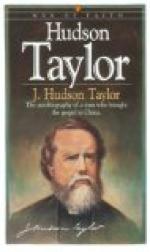* * *
I have been up and down the
Hudson by water. The entire river is
pretty, but the glory of the
Hudson is at West Point.
Anthony Trollope.
* * *
Baedeker, a high and just authority, in his recent Guide to the United States says: “The Hudson has sometimes been called the American Rhine, but that title perhaps does injustice to both rivers. The Hudson, through a great part of its extent, is three or four times as wide as the Rhine, and its scenery is grander and more inspiring; while, though it lacks the ruined castles and ancient towns of the German river, it is by no means devoid of historical associations of a more recent character. The vine-clad slopes of the Rhine have, too, no ineffective substitute in the brilliant autumn coloring of the timbered hillsides of the Hudson.”
* * *
A stately stream around which as around
The German Rhine hover mystic shapes
Richard Burton
* * *
What must have been the sensation of those early voyagers, coasting a new continent, as they halted at the noble gateway of the river and gazed northward along the green fringed Palisades; or of Hendrick Hudson, who first traversed its waters from Manhattan to the Mohawk, as he looked up from the chubby bow of his “Half Moon” at the massive columnar formation of the Palisades or at the great mountains of the Highlands; what dreams of success, apparently within reach, were his, when night came down in those deep forest solitudes under the shadowy base of Old Cro’ Nest and Klinkerberg Mountain, where his little craft seemed a lone cradle of civilization; and then, when at last, with immediate purpose foiled, he turned his boat southward, having discovered, but without knowing it, something infinitely more valuable to future history than his long-sought “Northwestern Passage to China,” how he must have gazed with blended wonder and awe at the distant Catskills as their sharp lines came out, as we have seen them many a September morning, bold and clear along the horizon, and learned in gentle reveries the poetic meaning of the blue Ontioras or “Mountains of the Sky.” How fondly he must have gazed on the picturesque hills above Apokeepsing and listened to the murmuring music of Winnikee Creek, when the air was clear as crystal and the banks seemed to be brought nearer, perfectly reflected in the glassy surface, while here and there his eye wandered over grassy uplands, and rested on hills of maize in shock, looking for all the world like mimic encampments of Indian wigwams! Then as October came with tints which no European eye had ever seen, and sprinkled the hill-tops with gold and russet, he must indeed have felt that he was living an enchanted life, or journeying in a fairy land!




